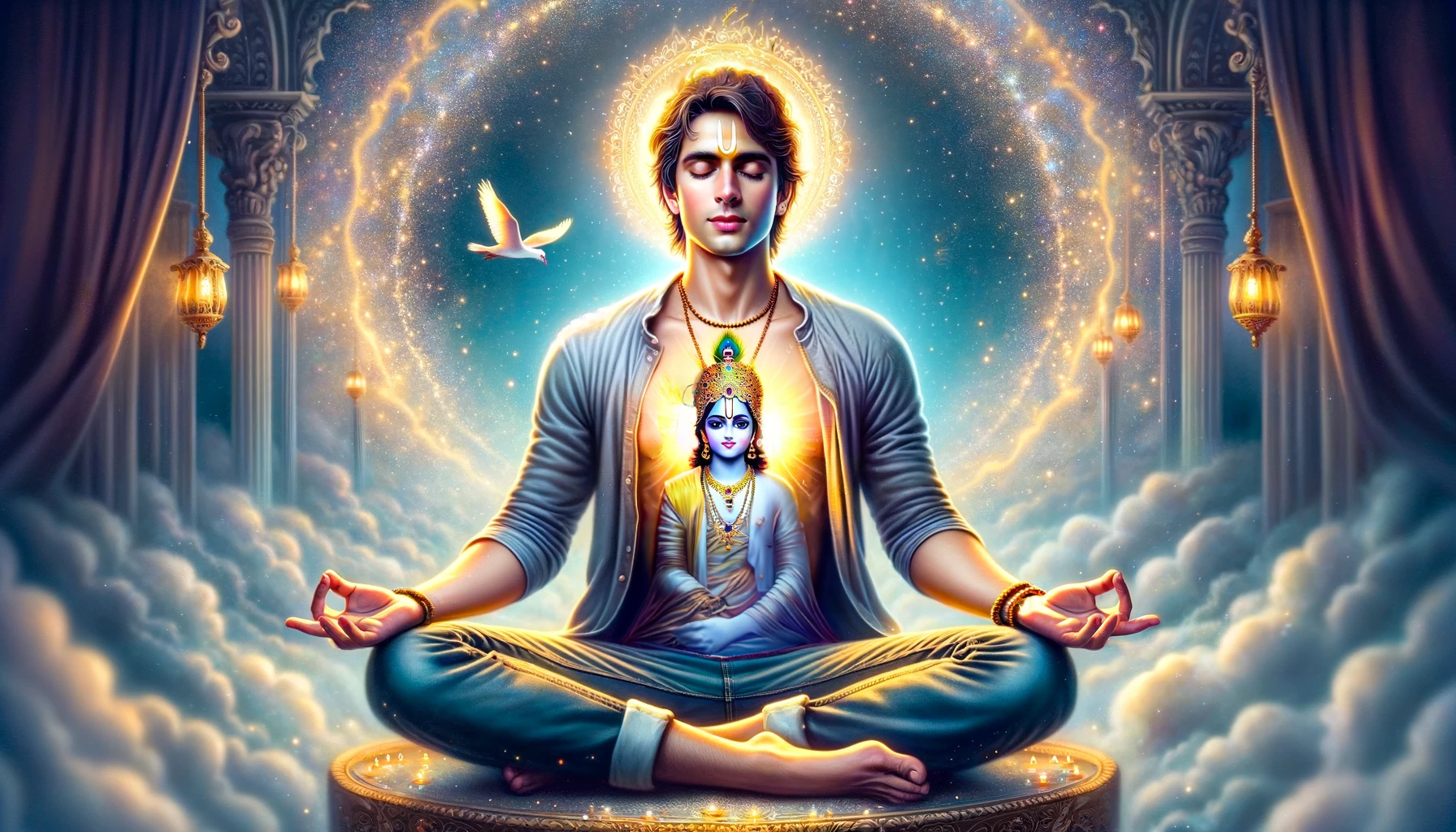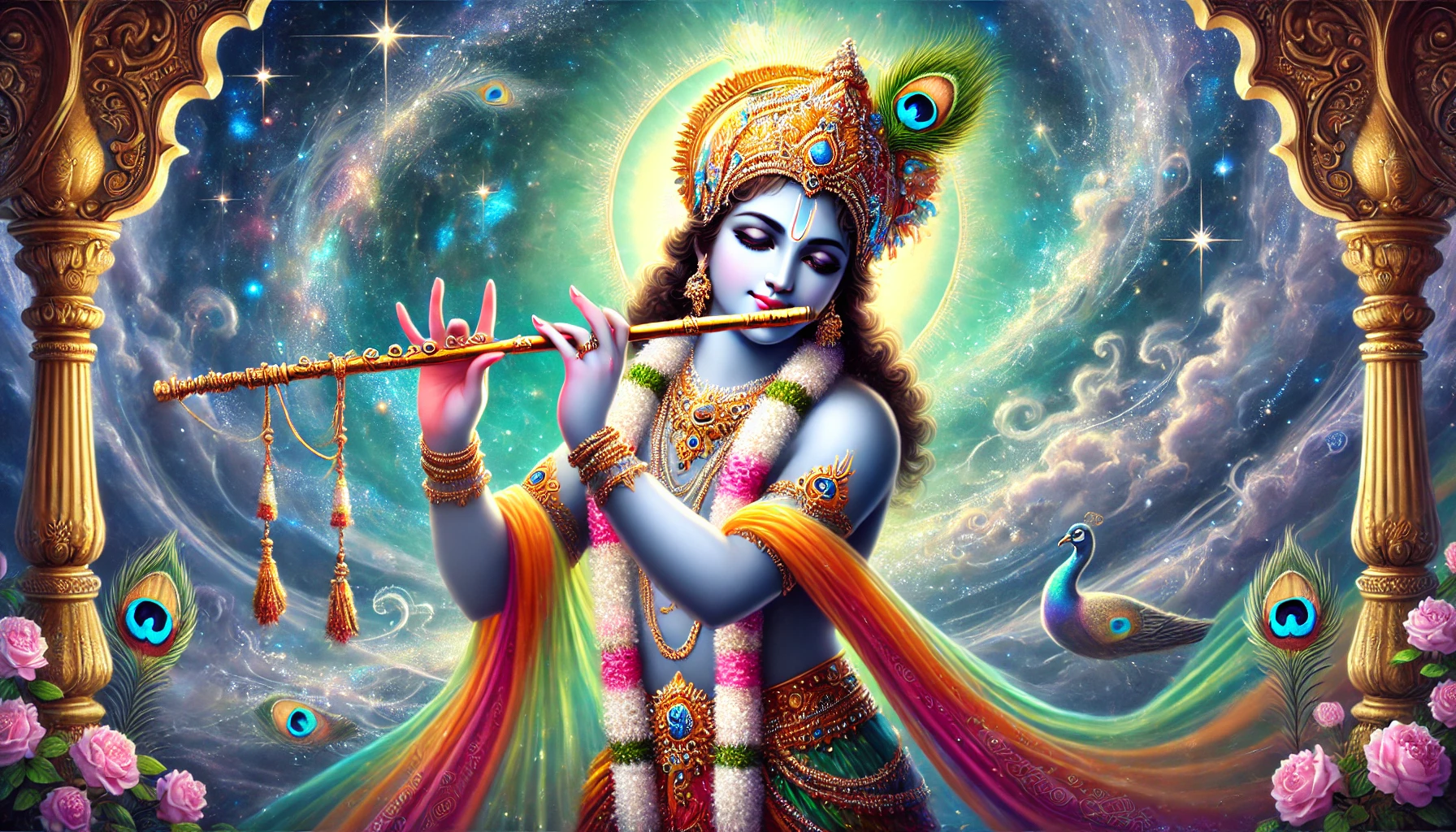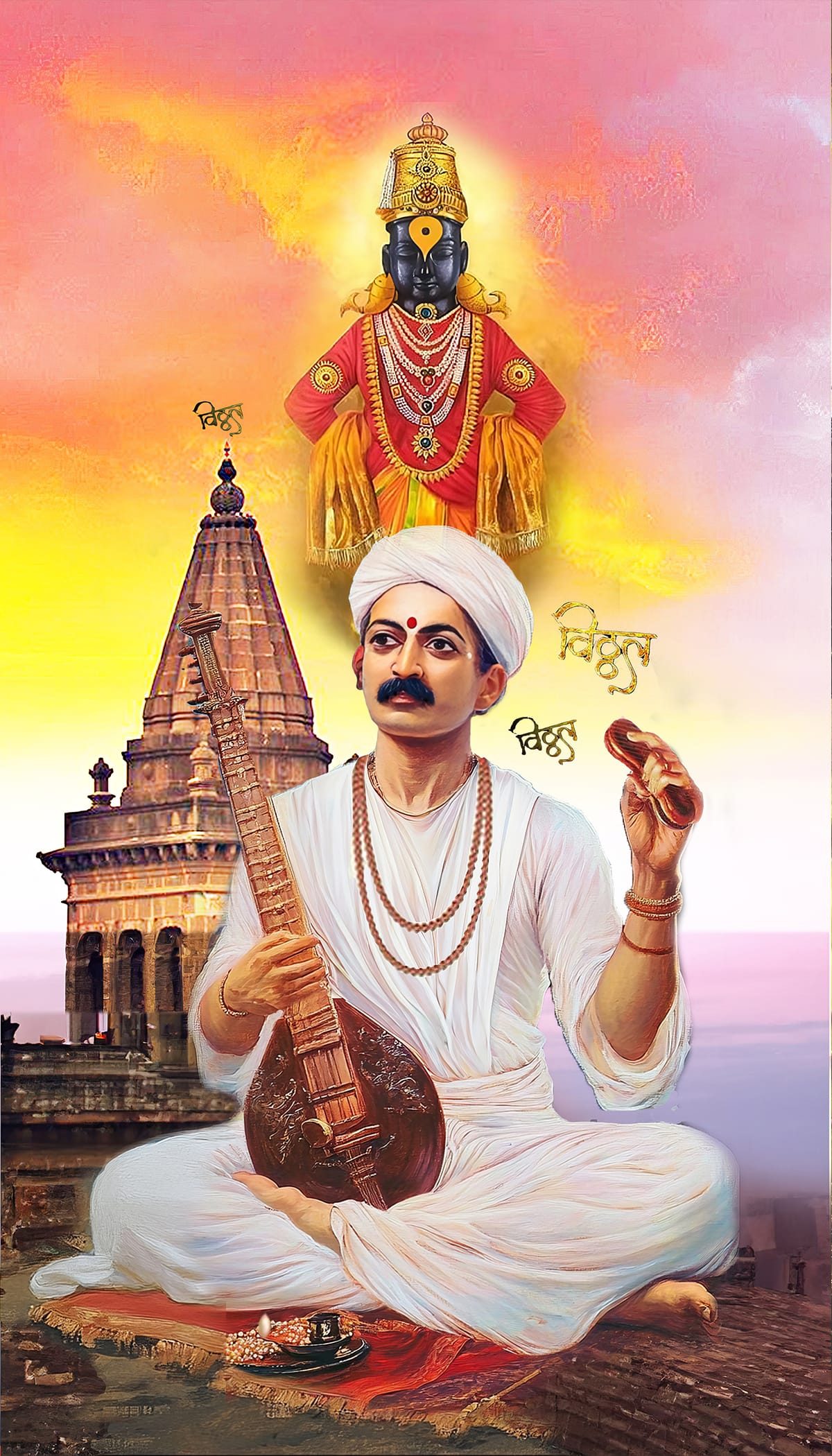The idea of ghosts and spirits has intrigued humanity for centuries, evoking both fear and fascination. Stories of eerie noises, unexplained occurrences, and disembodied presences are common across cultures and religions. While science has not yet acknowledged the existence of ghosts, countless personal experiences and ancient scriptures point toward the reality of these beings. In this blog, we will explore the phenomenon of ghosts, their categories, why souls become ghosts, and how to protect ourselves from potential ghostly influences.
This blog is inspired by Vedic teachings and aims to provide clarity on this mystical topic while reminding us of the eternal bond we share with the Divine.
What Are Ghosts?
According to the Vedas, the soul (atma) is eternal, divine, and a fragment of God. Enmeshed in three bodies—the gross body (sthool sharir), the subtle body (sukshma sharir), and the causal body (karan sharir)—it traverses the cycle of birth and death. The gross body, made of five elements (earth, water, fire, air, and space), ceases to function at death, leaving behind the subtle and causal bodies. These two accompany the soul into its next incarnation.
However, certain souls remain without a gross body and exist as disembodied beings—commonly referred to as ghosts.
Why Does a Soul Become a Ghost?

Ghostly existence is not a natural state but a result of specific karmic circumstances. Here are some reasons a soul may become a ghost:
- Suicide or Premature Death
A person may have unresolved karmas or unfulfilled life experiences, but by committing suicide or dying prematurely, they reject their gross body and violate the natural laws of creation. This leads to a temporary existence as a ghost until their karmic account aligns for another birth. - Attachment to the Material World
Some souls are deeply attached to their possessions, family, or unfulfilled desires. This attachment binds them to the earthly realm, preventing them from moving forward. - Sinful Actions and Negative Karma
Souls who have engaged in excessive materialism, perverse actions, or harmful behavior may suffer the consequences by being relegated to a ghostly existence. - Revenge or Strong Emotions
Extreme emotional distress, such as dying in a state of vengeance or anger, may lead to the soul’s return to haunt a specific person or place.
Categories of Ghosts in Vedic Scriptures

The Vedas and Puranas classify ghosts into various categories based on their characteristics and karmic baggage:
1. Bhut (Ghost)
A Bhut is a soul trapped in its subtle body. It retains memories and desires but lacks the physical faculties to fulfill them. This makes their existence excruciatingly painful.
"The Bhut is tormented by unfulfilled desires, yearning for what it cannot attain." – Garuda Purana
2. Pret (Hungry Spirit)
Pretas are disembodied beings with grotesque forms, symbolizing their unbridled cravings during their earthly life. For example, they might have a large stomach but a tiny mouth, reflecting their inability to indulge in sensual pleasures despite their insatiable desires.
"Those overwhelmed by desires in life shall bear the burden in death." – Brihat Samhita
3. Pishach (Fiend)
Pishachas are powerful and malevolent spirits. They thrive in areas with negative energy, such as graveyards or cremation grounds. Though dangerous, they seldom interact with humans, preferring to live in isolated realms.
"The Pishach dwells where darkness thrives, yet even they fear the light of divine grace." – Shiva Purana
4. Chudail (Feminine Ghost)
A Chudail is a female spirit, often believed to arise from women who suffered oppression or violent deaths. They are said to haunt those responsible for their torment.
5. Vetala (Zombie-like Spirit)
Vetalas are known to inhabit corpses, animating them like zombies. They are often depicted in Indian folklore as spirits possessing supernatural strength and a sinister aura.
Protection Against Ghostly Influences

While ghostly phenomena may sound terrifying, they are rarely harmful to those spiritually strong. The best protection against ghostly influences is cultivating divine grace and spiritual practices. Here are practical steps to protect yourself:
1. Strengthen Your Spiritual Practices
Chanting the divine names, meditating, and reading sacred texts create a protective aura of positivity around you.
"The light of God drives away the darkness of ignorance and fear." – Kathopanishad
2. Avoid Negative Energy
Stay away from practices that attract negative entities, such as black magic, witchcraft, or areas with heavy negative energy (e.g., graveyards).
3. Invoke Divine Presence
If you sense a ghostly presence, remember the Lord’s omnipotence and chant His names. Disembodied beings cannot withstand divine vibrations. The story of Sant Namdev is a testament to the power of faith. When confronted by a ghost in a well, he sang the praises of God, driving away the spirit with the light of devotion.
"The Lord is seated within us, closer than the closest. He protects and guides." – Bhagavad Gita
4. Seek Guidance from the Wise
In rare cases of genuine disturbances, consult spiritual guides or experts who can help with their knowledge of Vedic rituals.
5. Strengthen Mental Resolve
Most ghostly fears arise from the mind’s creation. Regular meditation, devotion, and self-discipline build inner strength, preventing external influences from overpowering your will.
Why Fear When God is Near?

Ghosts and spirits are part of the material realm, where karmic forces operate. However, our eternal relationship is with God, who is the source of all light and positivity. By anchoring our lives in spirituality, we transcend the lower vibrations of fear and connect with divine grace.
As stated in the Shiva Purana:
"Even in darkness, the faithful find light, for their guide is the eternal Lord."
Let us not fixate on ghosts or fear them but instead focus on strengthening our connection with the Divine. In this human life, our purpose is to uplift our soul, not to be bogged down by distractions of the material realm.
The Unshakable Faith of Saint Namdev

The story of Saint Namdev from Maharashtra is a profound testament to the transformative power of unwavering faith and devotion. Namdev, an ardent devotee of Lord Vithal, captivated the hearts of many through his soulful bhajans, glorifying the Lord's divine qualities. However, his growing popularity evoked jealousy among certain scholars in the village, who sought to challenge his faith. They devised a plan to test Namdev by asking him to fetch water from a well believed to be haunted by a fearsome ghost.
When approached, Namdev’s devotees pleaded with him not to go near the well, warning of the dangers posed by the ghost. But when the scholars taunted his devotion, Namdev fearlessly accepted the challenge, believing in the omnipresent protection of Vithal Bhagwan. As he approached the well, the ghost threatened to kill him if he dared to throw a bucket into the water. Unfazed, Namdev, in his divine vision, saw the ghost not as an adversary but as another form of the Lord Himself.
"Oh Vithal Bhagwan, you have appeared before me in so many forms," he declared. "Today, you come as a ghost. I will not waver in my devotion." His steadfastness in seeing divinity even in a disembodied being overwhelmed the ghost, and, as the story goes, Lord Vishnu manifested, praising Namdev’s devotion.
This tale highlights a profound spiritual truth: the power of faith in God can dispel even the darkest forces. Namdev’s life inspires us to see God’s presence everywhere and reminds us that devotion and light can triumph over fear and negativity.
Conclusion
The topic of ghosts and spirits often evokes fear and mystery, but understanding their existence through the lens of Vedic knowledge brings clarity and a sense of empowerment. From the concept of the soul and its journey through the three bodies, to the reasons why some souls become disembodied, and the various categories of ghosts, the Vedas provide profound insights into this phenomenon. It teaches us that these beings, though existing in darkness, are still under God’s care and have the potential for eventual redemption.
For us as spiritual aspirants, the key takeaway is not to fear these entities but to focus on strengthening our relationship with God. Just as Saint Namdev’s unwavering devotion dispelled the threat of a ghost, our sincere connection with the Divine can shield us from any negative influence. By bringing the light of spirituality into our lives through devotion, prayer, and meditation, we can create an impenetrable armor against any dark forces.
Rather than being fixated on or drawn into the realm of spirits and black magic, the Vedic scriptures urge us to walk the path of light, seeking the ultimate truth and liberation. As the Bhagavad Gita reminds us: “One who is engaged in full devotional service is protected by My grace and cannot be overcome by any darkness.”
Let us channel our energy into deepening our devotion and understanding the eternal truths revealed in the scriptures. Embrace positivity, let go of fear, and move forward on the path of self-realization and God-realization.
Call to Action
For more profound insights into spirituality, subscribe to Swami Mukundananda’s YouTube Channel. Learn timeless wisdom from the Vedas and practical ways to overcome fear, anxiety, and challenges in life through the power of devotion and knowledge.
FAQs:
1. What are ghosts and do they really exist?
Ghosts are often described as disembodied souls that have not moved on to their next stage of existence. While science has not proven their existence, many people report experiences that suggest otherwise. The Vedas offer explanations for the phenomenon of ghosts, describing different categories and reasons for their existence.
2. Why do souls become ghosts?
Souls can become ghosts due to various reasons such as extreme attachment to the material world, unfulfilled desires, suicide, or sinful activities in past lives. These souls may refuse to leave their physical environment and, as a result, remain as disembodied beings.
3. What are the different categories of ghosts according to the Vedas?
The Vedas describe several categories of ghosts, including:
- Bhut: A general term for a ghost, often representing a soul in pain due to unfulfilled desires.
- Pret: A hungry spirit, typically one who had extreme desires in their past life and is now unable to satisfy them in their disembodied form.
- Pishach: Dangerous and more powerful entities, often residing in places with negative energy like cremation grounds.
- Chudail: A feminine ghost, typically one seeking revenge for a violent or unjust death.
- Vetal: Similar to zombies, these beings inhabit corpses and bring them to life.
4. How can we protect ourselves from ghost attacks?
In most cases, what seems like a ghostly attack may be a mental creation, and strengthening the mind through spiritual practices like prayer, devotion, and contemplation can help protect against such experiences. In rare cases where actual spirits are involved, invoking divine light and cultivating a deep connection with God can offer protection and help drive the spirit away.
5. What does the Vedas say about the relationship with ghosts?
The Vedas acknowledge the existence of ghosts but advise not to dwell on them or worship them. Instead, they encourage individuals to focus on their spiritual growth, devotion to God, and the light of divinity, which can protect them from negative energies.
6. How can devotion and faith help in dealing with ghosts?
Devotion to God can act as a shield against ghosts and spirits. The example of Saint Namdev, who faced a ghost in a well with unwavering faith in God, illustrates that by seeing divinity in everything, including negative entities, we can overcome fear and darkness. Faith in God’s light can dispel all darkness, including the presence of ghosts.
7. What is the main takeaway regarding ghosts and spirits?
While ghosts and spirits may exist, it is essential not to fear them or worship them. The Vedas suggest focusing on cultivating a relationship with God, who can protect us and guide us through the challenges posed by these disembodied beings. By walking the path of light and devotion, we can transcend the fear of ghosts and live a peaceful, spiritual life.


